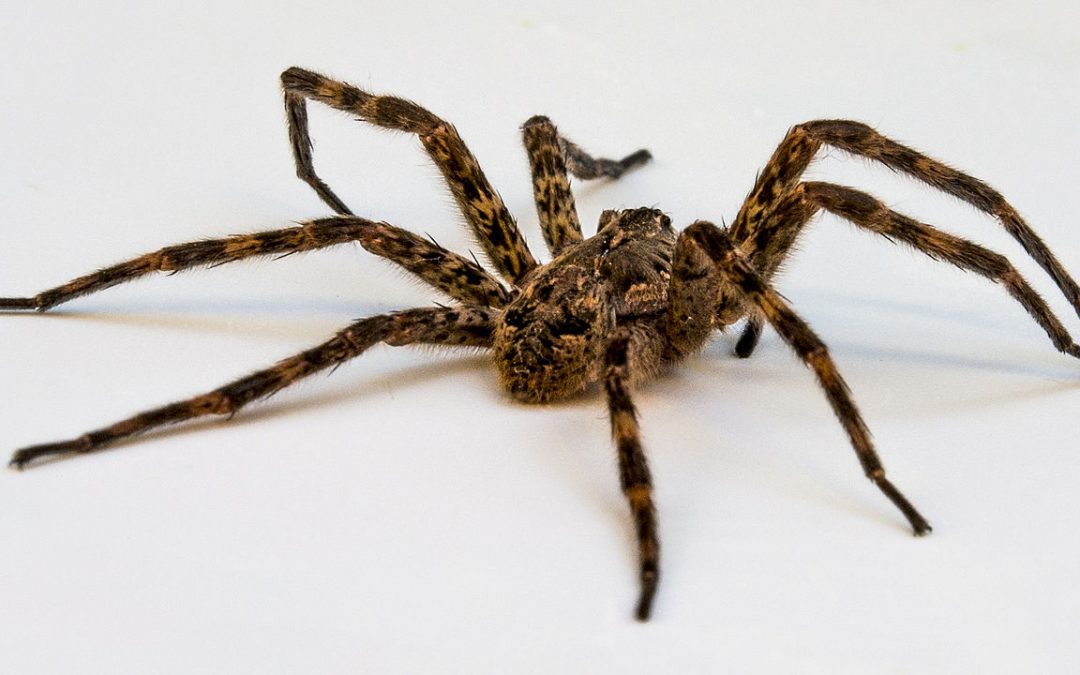Watch out for this creepy crawler this fall. The wolf spider, spotted by a customer in Jacksonville, NC, doesn’t travel alone. Before you squash it, watch out for the baby wolf spiders hitching a ride on their mom’s back. When disturbed, the little creatures scatter causing even more alarm. Aside from the young on their backs, wolf spiders can also be identified by their fairly large size, menacing appearance, 8 eyes, and gray-brown body.
Known for being hunters with great eye sight – these creepy arachnids live in solitude and don’t spin webs. What is most unique about the wolf spider is the way they carry their young on their backs. The egg sack is attached around the abdomen and the young remain here once hatched.
Wolf spiders are nocturnal and will inject venom if attacked. The venom is known to produce swelling, mild pain, and itching, but wolf spiders are not deadly to humans. Symptoms can persist for up to 10 days however, so make sure you get help to treat the bite right away.
If you see a wolf spider, it is best to leave them alone or to carefully remove them from your home before they take permanent residence. To help prevent them, vacuum frequently, so they don’t have a place to hide; and don’t unintentionally feed them. Other insects attract wolf spiders, and other insects are attracted by empty bottles, crumbs, and other food remnants. Keep your home tidy and food stored securely.
It is said that spiders hate lemon juice. By cleaning counter top surfaces and windows with lemon products you can help deter them from entering your home.
Now that you’ve met the wolf spider, here’s her formal scientific name: Lycosidae
KINGDOM: Animalia
PHYLUM: euarthropoda
CLASS: arachnida
ORDER: araneae
FAMILY: lycosodae


Recent Comments